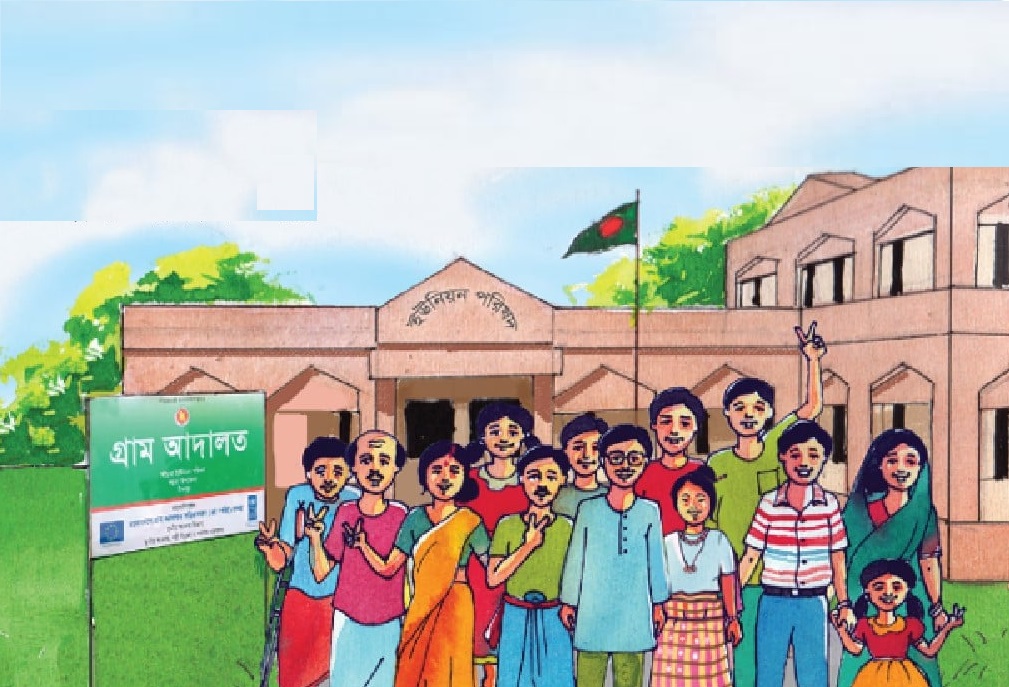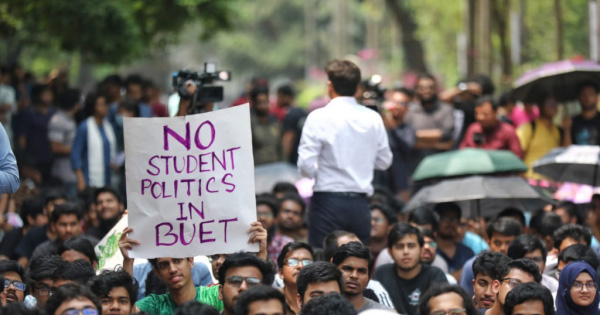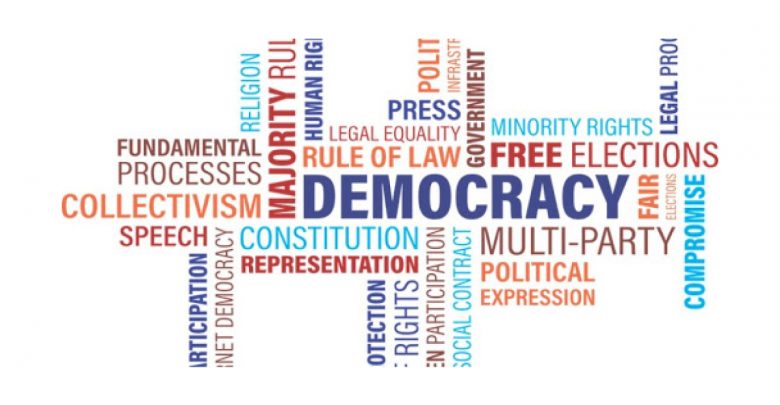The recent enactment of the Village Court (Amendment) Act, 2024, in Bangladesh has ignited a debate surrounding the government’s stance on justice, particularly in rural areas. This amendment, purportedly aimed at fortifying village courts, has evoked concerns regarding its potential ramifications on marginalized communities and the fundamental tenets of democracy and human rights.
At the forefront of contention lies the substantial augmentation in fines levied by village courts, a provision that has garnered considerable scrutiny for its potential to disproportionately impact vulnerable segments of society. The abrupt escalation of fines, as stipulated in the amendment, raises pertinent questions about its implications on access to justice, particularly for those with limited financial means. By imposing exorbitant fines, the government risks exacerbating socio-economic disparities and perpetuating injustices, rather than fostering equitable dispute resolution mechanisms. Furthermore, the ratification process of the amendment, which lacked transparent debate or substantial public consultation, highlights a concerning trend in authoritarian governance: decisions are made without meaningful citizen engagement. In addition to undermining democratic governance principles, the lack of participatory processes also erodes public confidence in the legislative branch, escalating already-existing disenchantment with state institutions.
The augmentation of authority bestowed upon village court members, including provisions susceptible to abuse of power, poses a formidable challenge to the integrity of the judicial system. The potential for arbitrary decision-making and manipulation of justice raises concerns about the impartiality and fairness of village court proceedings, thereby jeopardizing the sanctity of the legal framework. Such discretionary powers, if unchecked, have the potential to engender a culture of impunity and injustice, perpetuating cycles of systemic oppression and marginalization. Moreover, the government’s purported objective of promoting alternative dispute resolution through village courts is met with skepticism, given persisting concerns about due process and procedural fairness. While village courts may offer a semblance of informal justice, the efficacy of such mechanisms in upholding the rule of law and safeguarding human rights remains dubious. The emphasis on expediency and cost-effectiveness, at the expense of procedural safeguards and legal protections, risks compromising the rights and dignity of individuals, particularly marginalized groups with limited access to legal representation.
In light of these developments, it is imperative for the government to reevaluate its approach to village courts and prioritize comprehensive reforms that uphold the principles of justice, fairness, and accountability. Meaningful engagement with civil society stakeholders, including marginalized communities and legal experts, is essential to ensure that policy interventions are informed by diverse perspectives and grounded in the principles of participatory governance. Ultimately, the government’s commitment to justice and development hinges on its willingness to address systemic inequalities, foster inclusive decision-making processes, and uphold the rule of law. Failure to heed these imperatives not only undermines the credibility of the state but also perpetuates injustices, thereby betraying the trust and aspirations of the Bangladeshi populace. As such, it is incumbent upon the government to chart a course towards justice that is guided by principles of democracy, human rights, and equitable access to legal recourse.
Expanding on the ramifications of the Village Court (Amendment) Act, it is essential to delve deeper into the socio-economic implications of the increased fines imposed by village courts. While the ostensible aim of augmenting fines may be to deter unlawful behavior and promote compliance with local regulations, the unintended consequences of such measures cannot be overlooked. In many rural communities, where poverty and economic instability are pervasive, the imposition of hefty fines may exacerbate existing financial burdens and perpetuate cycles of indebtedness. Moreover, the disproportionate impact of fines on marginalized groups, including women, minorities, and low-income households, underscores the broader issue of socio-economic inequality and access to justice.
The lack of transparency and public consultation in the legislative process surrounding the Village Court (Amendment) Act raises concerns about democratic governance and accountability. In a functioning democracy, the passage of significant legislation should be preceded by robust debate, stakeholder consultation, and transparent decision-making processes. However, the rushed and opaque manner in which the amendment was ratified suggests a disregard for these foundational principles, undermining public trust in the government and the rule of law. Furthermore, the expanded authority granted to village court members, particularly the provision allowing the union parishad chairman to exercise additional voting power in the absence of other members, raises questions about the checks and balances within the judicial system. Such discretionary powers, if wielded without appropriate oversight mechanisms, have the potential to undermine the impartiality and integrity of village court proceedings, thereby compromising the rights of individuals to fair and equitable justice.
In assessing the purported objective of promoting alternative dispute resolution through village courts, it is essential to critically evaluate the efficacy and fairness of such mechanisms in practice. While village courts may offer an informal avenue for resolving disputes at the local level, concerns about due process, procedural fairness, and access to legal representation persist. Without adequate safeguards and oversight, there is a risk that village courts may inadvertently perpetuate injustices, particularly against marginalized groups with limited resources and legal knowledge. Moving forward, it is incumbent upon the government to heed the concerns raised by civil society stakeholders and prioritize comprehensive reforms that uphold the principles of justice, fairness, and accountability. Meaningful engagement with marginalized communities, legal experts, and human rights advocates is essential to ensure that policy interventions are grounded in the lived experiences and needs of the population. By fostering inclusive decision-making processes and upholding the rule of law, the government can demonstrate its commitment to democratic governance and equitable access to justice for all citizens.
In conclusion, the passage of the Village Court (Amendment) Act underscores the complexities and challenges inherent in the pursuit of justice in Bangladesh. While the amendment may have been intended to strengthen village courts and promote alternative dispute resolution, its potential ramifications on marginalized communities and democratic governance raise significant concerns. By prioritizing transparency, accountability, and the protection of human rights, the government can chart a path towards justice that is grounded in democratic principles and equitable access to legal recourse. Anything less would be a disservice to the ideals of democracy and the aspirations of the Bangladeshi people.







